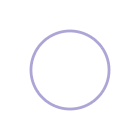There's a lot that you need to know to become a UX/UX or Product designer, but there are also a ton of things that aren't so important that you might be focusing too much on.
Watch the video
1. Do I need a university degree?
UI/UX and Product Designers can make as much as some doctors. Yet, you don't need to go into student debt and get a traditional design degree to get into this profession. Unlike traditional academia and certain licensed professions, your value as a designer isn't dictated by the institution that you went to. Your merit as a designer comes from how elegantly and convincingly you can solve and present your solutions to complex user problems. So while you don't need a degree you do need a good education and you do need to learn and master certain disciplines, methods, tools and techniques.
“I have never let my schooling interfere with my education.” –Mark Twain
2. Do I need a background in design?
Believe it or not, no matter what profession you're currently in, you have a lot of transferable skills that you can apply to a career in UX/UI or product design. As a matter of fact, some of the best UX/UI designers I know did not have a creative or graphic design background. Our student Pricilla, for example went from being a dentist to a product designer to a product designer by leaning into her people skills and then working to enhance other areas she was weaker in. Our other student Adam was in marketing and used his impressive spreadsheet skills, project management and advertising savvy to design mobile apps that he could sell himself. You do need to know how to frame and leverage your past experience to inform and enhance your work as a UI/UX designer. The skills you already possess can make you a valuable outside of the box thinker if you know how to showcase them correctly.
3. Do I need to know how to draw?
Contrary to what you might think, UI/UX designers don't specialize in graphic design or illustration. Most of our playground is in user research, interaction and component design. What you do need to understand is how you can utilize and customize existing resources like illustrations and icons and design systems and how to apply visual design principles and UX psychological laws to your designs and layouts.
4. Do I need to know how to code?
Some UX/UI designers are also web designers, front-end developers or programmers that write code. But most of us are not, meaning we don't know how to actually write HTML, CSS and Javascript. What you do need to understand is how code works. HTML and CSS are what is used to implement the designs and interactions that you create, so becoming familiar with how stylesheets work, understanding the tech stack being used and how browsers render designs is really important. This will help you understand your constraints as a designer and it will also help you effectively communicate with the developers that will be implementing your designs.
5. Do I need a lot of case studies?
Quality beats quantity. If you are just starting out, choose an industry and a project that you're passionate about working on and create just 1 in-depth case study from start to finish. Most importantly, you do need to know who you are you trying to attract with your portfolio, what their problem is and how can you as a designer can provide a solution and communicate your design process.
6. Do I need many years of working experience?
Generally, the more work experience you have the better you will become and the more companies will believe that you're capable of doing the work, but you've got to start somewhere. Don't be afraid to start applying for UX/UI jobs after you've created your first case study. Rather than worrying about the minimum years of experience suggested in a job description, what you do need is to focus on showing the value behind the design. Communicating the business ROI that your audience can expect from hiring you is key. If you do this right it can be enough to get you ready to start applying for and landing internships or junior roles, even higher roles than that.
7. Do I need to be the best designer in the room?
Being the best is subjective, all things being equal, there will always be someone better at something than you. What you do need is the right mindset. Most people will give up before they've even made it far enough to get their first yes. If you focus on creating great, usable products, having a growth mindset, seeing failure as opportunity, framing rejection as experience and being hungry to learn and share your passion you will absolutely find the right position at the right time, that's right for you.
Investing in a solid design education and having a trained teacher help you navigate the product design industry and help equip you with the right mindset, skills and processes is one of the best things you can do for your career. If you are interested in becoming a highly valued product designer come learn with us in our Product (UX/UI) Design Course.
*This article contains an affiliate link to Craftwork. An awesome place to get wonderful UI/UX resources and support our blog in the process!
What to read next
Check out our collection of incredible articles and resources on getting hired as a UX/UI or Product Designer.


